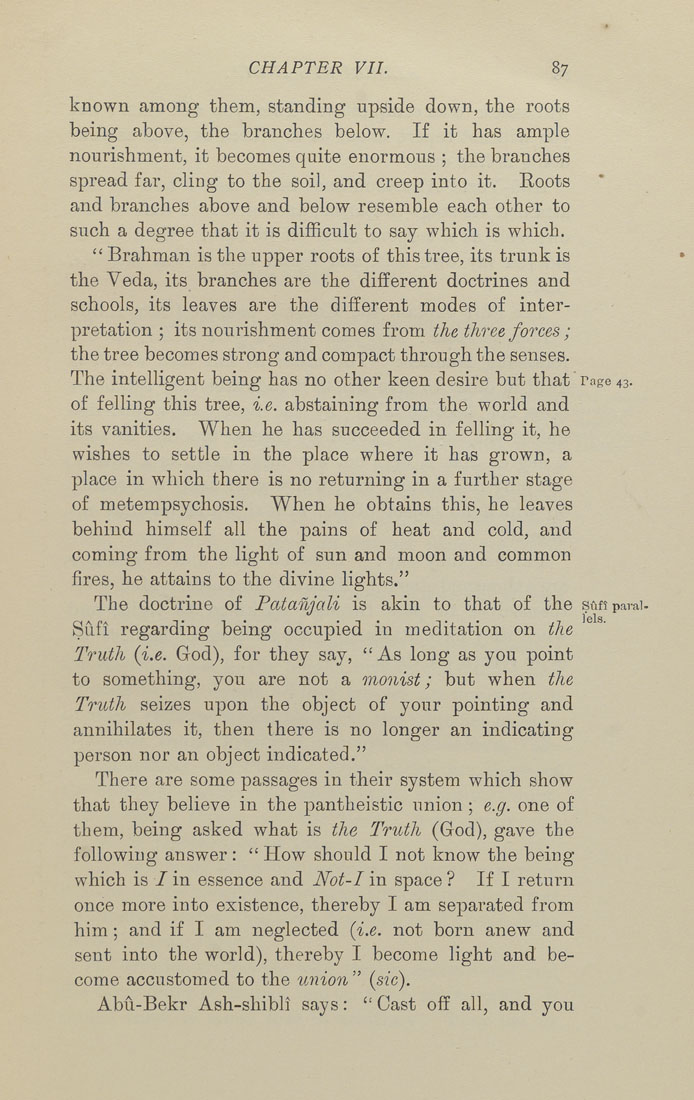Bīrūnī, Muḥammad ibn Aḥmad, Alberuni's India (v. 1)
(London : Kegan Paul, Trench, Trübner & Co., 1910.)
|
||
|
|
|
|
| Page 87 |

CHAPTER VII. 87 known among them, standing upside down, the roots being above, the branches below. If it has ample nourishment, it becomes quite enormous ; the branches spread far, cling to the soil, and creep into it. Roots and branches above and below resemble each other to such a degree that it is difficult to say which is which. " Brahman is the upper roots of this tree, its trunk is the Veda, its branches are the different doctrines and schools, its leaves are the different modes of inter¬ pretation ; its nourishment comes from the three forces ; the tree becomes strong and compact through the senses. The intelligent being has no other keen desire but that rage 43. of felling this tree, i.e. abstaining from the world and its vanities. When he has succeeded in felling it, he wishes to settle in the place where it has grown, a place in which there is no returning in a further stage of metempsychosis. When he obtains this, he leaves behind himself all the pains of heat and cold, and coming from the light of sun and moon and common fires, he attains to the divine lights." The doctrine of Patanjali is akin to that of the sufi parai- Silfi regarding being occupied in meditation on the Truth (i.e. God), for they say, "As long as you point to something, you are not a monist; but when the Tridh seizes upon the object of your pointing and annihilates it, then there is no longer an indicating person nor an object indicated." There are some passages in their system which show that they believe in the pantheistic union; e.g. one of them, being asked what is the Truth (God), gave the following answer : " How should I not know the being which is / in essence and Not-I in space ? If I return once more into existence, thereby I am separated from him ; and if I am neglected (i.e. not born anew and sent into the world), thereby I become light and be¬ come accustomed to the union" (sic). Abu-Bekr Ash-shibli says: " Cast off all, and you |
| Page 87 |







